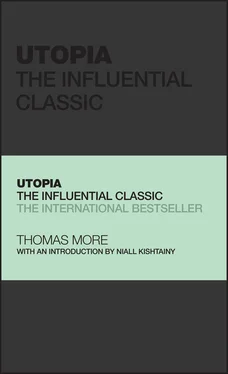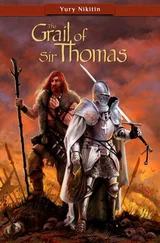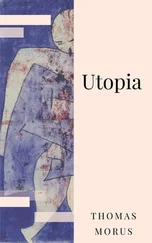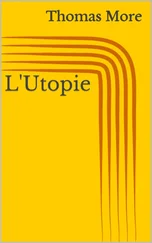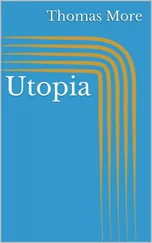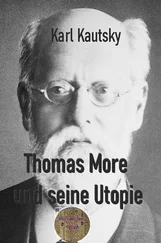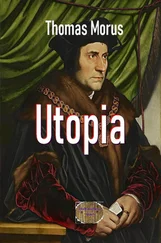Wherefore, I most earnestly desire you, friend Peter, to talk with Hythloday, if you can face to face, or else write letters to him, and so to work in this matter that in this, my book, there may be neither anything be found that is untrue, neither anything be lacking which is true. And I think verily it shall be well done that you show unto him the book itself, for if I have missed or failed in any point, or find any fault that has escaped me, no man can so well correct and amend it as he can, and yet that can he not do unless he peruse and read over my book written. Moreover, by this means shall you perceive whether he will be willing and content that I should undertake to put this work in writing. For if he be minded to publish and put forth his own labours and travails himself, perchance he would be loathe, and so would I also, that in publishing the Utopian commonwealth I should prevent and take from him the flower and grace of the novelty of this his history.
Howbeit, to say the very truth, I am not fully determined with myself whether I will put forth my book or no. For the natures of men be so divers, the fantasies of some so wayward, their minds so unkind, their judgments so corrupt that they which lead a merry and jocund life following their own sensual pleasures and carnal lusts, may seem to be in a much better state or case than they that vex and unquiet themselves with cares and studies for putting forth and publishing of something, that may be either profit or pleasure to others, which others nevertheless will disdainfully, scornfully, and unkindly accept the same. The most part of all be unlearned, and a great number hold learning in contempt. The rude and barbarous allow nothing but that which is very barbarous indeed. If it be one that has a little smack of learning, he rejects as homely and common‐ware whatsoever is not stuffed full of old moth‐eaten words and that be worn out of use. Some there be that have pleasure only in old rustic antiquities, and some only in their own doings. One is so sour, so crabbed, and so unpleasant that he can abide with no mirth or sport; another is so narrow between the shoulders, that he can bear no jests or taunts. Some silly poor souls be so afraid that at every snappish word their nose shall be bitten off that they stand in no less dread of every quick and sharp word than he that is bitten of a mad dog fears water. Some be so mutable and wavering that every hour they be in a new mind, saying one thing sitting and another thing standing. Another sort sits upon their ale benches, and there among their cups they give judgment of the wits of writers and with great authority they condemn even as please them every writer according to his writing in most spiteful manner mocking, louting, and flouting them: being themselves in the mean season safe and, as sayeth the proverb, out of all danger of gunshot. For why they be so smug and smooth that they have not so much as one hair of an honest man whereby one may take hold of them. There be, moreover, some so unkind and ungentle that though they take great pleasure and delectation in the work, yet for all that they can not find in their hearts to love the author thereof, nor to afford him a good word, being much like uncourteous, unthankful, and churlish guests, which when they have with good and dainty meats well filled their bellies, depart home giving no thanks to the feast‐maker. Go your ways now, and make a costly feast at your own charges for guests so dainty‐mouthed, so divers in taste, and besides that, of so unkind and unthankful natures.
But nevertheless, friend Peter, do I pray you with Hythloday as I willed you before, and as for this matter, I shall be at my liberty afterwards to take new advisement. Howbeit, seeing I have taken great pains and labour in writing the matter, if it may stand with his mind and pleasure, I will, as touching the edition or publishing of the book, follow the counsel and advice of my friends, and especially yours. Thus fare you well, right
heartily beloved friend Peter, with
your gentle wife; and love
me as you have ever done;
for I love you better
then I ever did.

II

LETTER: PETER GILES TO JEROME DE BUSLEYDEN
Thomas More, the singular ornament of this our age, as you yourself (right honorable Busleyden) can witness, to whom he is perfectly well known, sent unto me this other day the Island of Utopia , to very few as yet known, but most worthy which, as far excelling Plato's commonwealth, all people should be willing to know: especially of a man most eloquent, so finely set forth, so cunningly painted out, and so evidently subject to the eye, that as oft as I read it, me thinketh that I see somewhat more then when I heard Raphael Hythloday himself (for I was present at that talk as well as master More) uttering and pronouncing his own words. Yea, though the same man, according to his pure eloquence, did so open and declare the matter, that he might plainly enough appear to report not things which he had learned of others only by hearsay, but which he had with his own eyes presently seen, and thoroughly viewed, and wherein he had in no small time been conversant and abiding. A man truly, in my opinion, as touching the knowledge of regions, peoples, and worldly experience, much passing, yea, even the very famous and renowned traveller Ulysses, and indeed such a one: as for the space of these eight‐hundred years past I think nature into the world brought not forth his like, in comparison of whom Vespucci may be thought to have seen nothing.
Moreover, whereas we be wont more effectually and pithily to declare and express things that we have seen than which we have but only heard, there was besides that in this man a certain peculiar grace and singular dexterity to describe and set forth a matter with‐all. Yet the self same things as oft as I behold and consider them drawn and painted out with master More's pencil, I am therewith so moved, so delighted, so inflamed, and so rapt, that sometime methink I am presently conversant, even in the island of Utopia. And I promise you, I can scant believe that Raphael himself, by all that five years space that he was in Utopia abiding, saw there so much as here in master More's description is to be seen and perceived. Which description, with so many wonders and miraculous things is replenished, that I stand in great doubt whereat first and chiefly to muse or marvel: whether at the excellency of his perfect and sure memory, which could well nigh word by word rehearse so many things once only heard; or else at his singular prudence, who so well and wittily marked and bare away all the original causes and fountains (to the vulgar people commonly most unknown) whereof both issue and spring the mortal confusion and utter decay of a commonwealth, and also the advancement and wealthy state of the same may rise and grow; or else at the efficacy and pith of his word, which in so fine a Latin style, with such force of eloquence, hath couched together and comprised so many and divers matters, especially being a man continually encumbered with so many busy and troublesome cares, both public and private, as he is. Howbeit all these things cause you little to marvel (right honorable Busleyden) for that you are familiarly and throughly acquainted with the notable, yea, almost divine, wit of the man.
But now to proceed to other matters, I surely know nothing needful or requisite to be adjoined unto his writings. Only a meter of four verses written in the Utopian tongue which, after master More's departure, Hythloday by chance showed me that have I caused to be added thereto, with the Alphabet of the same nation, and have also garnished the margin of the book with certain notes. 3For, as touching the situation of the island, that is to say in what part of the world Utopia stands, the ignorance and lack whereof not a little troubleth and grieveth master More, indeed Raphael left not that unspoken of. Howbeit, with very few words he lightly touched it, incidentally by the way passing it over, as meaning of likelihood to keep and reserve that to another place. And the same, I know not how, by a certain evil and unlucky chance escaped us both. For when Raphael was speaking thereof, one of master More's servants came to him and whispered in his ear. Wherefore, I being then of purpose more earnestly given to hear, one of the company, by reason of cold taken, I think, a‐shipboard, coughed out so loud, that he took from my hearing certain of his words. But I will never stint, nor rest, until I have got the full and exact knowledge hereof; insomuch that I will be able perfectly to instruct you, not only in the longitude or true meridian of the island, but also in the just latitude thereof, that is to say in the sublevation or height of the pole in that region, if our friend Hythloday be in safety and alive. For we hear very uncertain news of him. Some report that he died in his journey homeward. Some again affirm that he returned to his country; but partly, for that he could not abide with the fashions of his country folk, and partly for that his mind and affection was altogether set and fixed upon Utopia, they say that he has taken his voyage thitherward again.
Читать дальше
